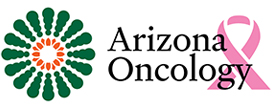Breast Cancer Risk Factors
CANCER SCREENING
find a clinical trial
GENETIC TESTING
Genetic Testing

Learn more about our clinical trials currently enrolling breast cancer patients
Clinical trials
TALK TO ONE OF OUR CANCER CARE SPECIALISTS AT A LOCATION NEAR YOU.
REQUEST AN
APPOINTMENT ONLINE
According to the National Cancer Institute, U.S. women have a one in eight risk of developing breast cancer during their lifetime. Unfortunately, there is no way to completely prevent breast cancer, but there are steps you can take to reduce your risk.
Risk Factors for Breast Cancer You Can Control
Some breast cancer risks are lifestyle-related. This means they involve personal behaviors and the choices you make. If you’re concerned about developing breast cancer, you can make changes to reduce your risk.
3 common lifestyle risk factors – and how you can reduce them.
- Drinking Alcohol. The risk of developing breast cancer increases with the amount of alcohol you drink. To reduce your risk, the American Cancer Society recommends consuming a maximum of one alcoholic beverage per day (For women:12 ounces of beer, 5 ounces of wine, or 1.5 ounces of liquor).
- Being Overweight. Being overweight or obese after menopause increases your breast cancer risk. Excess body fat is associated with increased blood insulin levels and increased estrogen levels in women — both of which have been associated with breast cancer. If you’re overweight, talk to your doctor about what is a good plan for you.
- Birth control. Certain forms of birth control (including oral contraceptives) have been linked to a slightly higher risk of developing breast cancer. To reduce this risk, talk to your doctor about forms of non-hormonal contraception (such as an IUD or condoms).
Additionally, according to the American Cancer Society, women who have a baby before age 30 and women who have multiple children have a slightly lower risk of breast cancer. If you give birth at any age, breastfeeding your baby for at least a year can reduce your risk of developing breast cancer, according to the National Cancer Institute.
Uncontrollable Risk Factors for Breast Cancer
Some breast cancer risk factors are genetic (inherited), meaning you were born with them.
Genetic risk factors for breast cancer include:
- Gender. Women are 100 times more likely than men to develop breast cancer.
- Age. Women ages 55 and older have the highest risk of developing invasive breast cancer.
- Dense breast tissue. This makes it more difficult to detect cancer on a mammogram.
- A family history of breast cancer or inherited gene mutations. If any women in your immediate family (grandmother, mother, aunt, sister, daughter, or cousin) have been diagnosed with breast cancer you may consider learning more about genetic testing that can be done to determine if you are at a higher risk of developing breast cancer. It’s a good idea to talk to a genetic counselor if you are concerned about inherited cancer genes.
- Personal history of breast cancer. If you have had breast cancer previously, you’re more likely to develop it again.
Even if you possess one or more risk factors for breast cancer, knowing you’re at heightened risk is beneficial. You can take charge of your health by making sure to have regular breast cancer screenings. If you do develop the disease, the earlier it’s detected, the better the likelihood of a positive outcome.
Detection & Diagnosis
If you feel you may have a greater risk for breast cancer due to your lifestyle, consider discussing this with your primary doctor. Genetic counseling is available at many of our locations across Arizona.
→ You can learn more about how breast cancer is found and diagnosed in this section.


